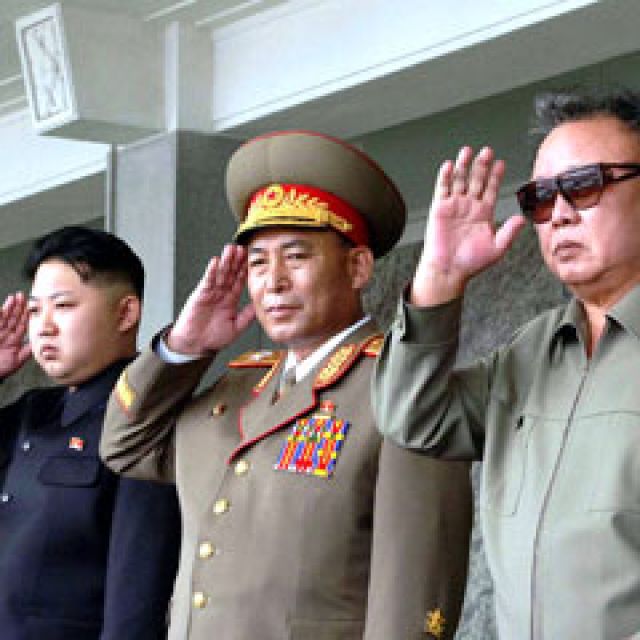VATICAN CITY — The death of North Korean leader Kim Jong Il has opened a window of opportunity for renewed dialogue and possible reunification of the peninsula, said two South Korean bishops.
Bishop Peter Kang U-il of Cheju, president of the Catholic Bishops' Conference of Korea, said the leader's death Dec. 17 "may be the beginning of a turning point for the path of the reunification of the Koreas."
"We hope that the Lord gives the light and strength to the North Korean brothers so that there is a return for a policy focused on dialogue, peace and reconciliation," he said in an interview Dec. 19 with Fides, the Vatican's missionary news agency.
Bishop Lazzaro You Heung-sik of Daejeon, South Korea, told the Rome-based AsiaNews Dec. 19 that "we must focus on dialogue for peace but remain alert."
He said he feared the leader's death would prompt "a period of great confusion."
"Inside the regime, there will (be) a clash between the party and the army. The young age of the heir will not help a smooth transition," said You.
Kim's youngest son, 27-year-old Kim Jong-un, was declared the country's next leader.
Kim, who suffered a stroke in 2008, had ruled the reclusive communist state since 1994, following the death of his father, Kim Il-sung.
You said the new leader lacks the political experience needed to guide the country's relations with the United States, South Korea and China. He expressed concerns that the transition would not be smooth and that "a harsh conflict will break out now between the party, which is in the hands of the heir's uncle, and the military that are answerable to Kim Jong-un."
Too much political wrangling would mean the citizens of North Korea end up paying the price with continued poverty and deaths from hunger, he said.
"We must do our utmost to start sending humanitarian aid again and prevent more deaths from the situation. It is too soon to say what will happen on the Korean Peninsula, but we must pray and work so that peace wins," said You.
"We need to focus on dialogue now that a certain window of opportunity has opened up. We must pray for peace in Korea and the world, and use the Christmas season to remain vigilant but with a hand extended to our brothers in the North."
Fr. Baptist John Kim Hun-il, executive secretary of the Korean bishops' Subcommittee for Aid to North Korea, expressed hope that Kim's death would not plunge North Korea into further chaos, the Asian Church news agency UCA News reported. He also said that the bishops want to continue the committee's aid program to the North and that there might be the possibility of more openness within the secretive state that could lead to progress in reconciliation efforts.
After Korea was freed from Japanese rule at the end of the Second World War, it was split into the Soviet Union-backed communist North and the U.S.-supported South.
There have been no permanent resident priests or religious in North Korea since the Korean War started in 1950. In 1988, the government created the North Korea Catholic Association and built a Catholic church the following year. Occasionally, when Catholic clergy are allowed to visit the North, they are permitted to celebrate Mass in the church, but no one knows how many Catholics remain in the North.
The North is deeply impoverished and although churches are tightly controlled, Caritas Internationalis — the Vatican-based confederation of national Catholic charities — has been working in the North for more than 15 years. The help began when a series of floods in 1996 led to severe famine that lasted for years.
Bishops hope North Korea's regime change will bring peace, unification
By Carol Glatz Catholic Register
Tagged under:
Please support The Catholic Register
Unlike many media companies, The Catholic Register has never charged readers for access to the news and information on our website. We want to keep our award-winning journalism as widely available as possible. But we need your help.
For more than 125 years, The Register has been a trusted source of faith-based journalism. By making even a small donation you help ensure our future as an important voice in the Catholic Church. If you support the mission of Catholic journalism, please donate today. Thank you.
DONATE
